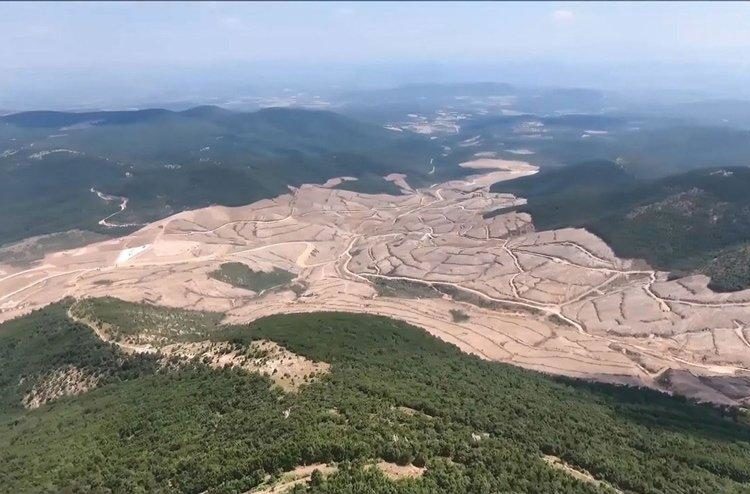Levent Kenez/Stockholm
Turkish President Recep Tayyip Erdoğan was actually well prepared for the COP 26 UN Climate Change Conference held October 31-November 12, 2021 in Glasgow. Before the summit the Turkish Parliament had ratified the Paris Agreement, a legally binding international treaty on climate change, putting an end to Turkey being the only G-20 country that had not done so. Erdoğan’s office also prepared a book about Turkey’s environmental awareness for him to gift leaders at the summit. However, Erdoğan chose not to attend the historic climate conference, using a dispute over the security protocol as an excuse, in some ways showing how important the climate issue is to him. It was alleged that a weary Erdoğan, who had serious health problems, would not be able to handle another intense summit following the G-20 meetings in Rome a few days prior to the Glasgow conference. Many believe that if US President Joe Biden had not given Erdoğan a long-awaited meeting in Rome and had offered instead to meet in Glasgow, Erdoğan would have definitely traveled there. Nordic Monitor reviewed the book and found that there is a huge gap between reality and the propaganda in the book.
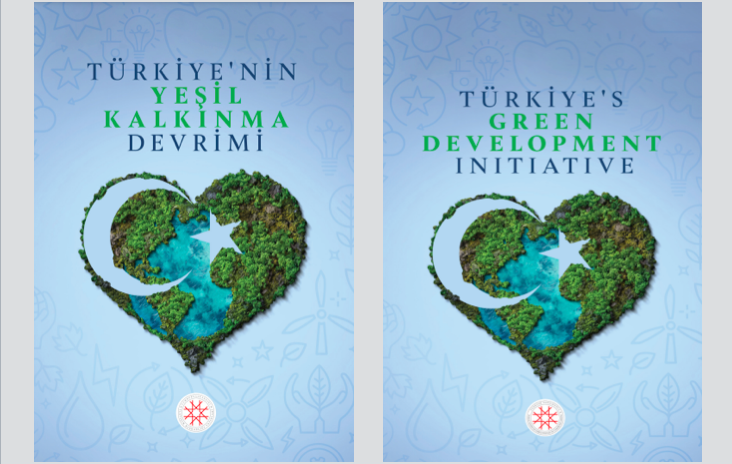
The first interesting detail about the book, which was published in both English and Turkish, is that the titles in the two languages are different. The Turkish title of the book is “Türkiye’nin Yeşil Kalkınma Devrimi,” which means “Turkey’s Green Development Revolution”; however, the English title is “Türkiye’s Green Development Initiative.” Preferring a very assertive word like “revolution” in Turkish, Erdoğan’s office behaved somewhat more cautiously in English by using “Initiative” instead of “Revolution.” Perhaps Erdoğan’s team thought “revolution” would lead to sarcastic reactions from foreign readers and environmental experts, coming as it does from a country that had ratified the 2015 Paris Agreement, seen as a test of environmental seriousness, only a month earlier. The Presidential Directorate of Communications had announced a while ago that it would use “Türkiye” instead of Turkey in the English version. Other state institutions, including the Ministry of Foreign Affairs, continue to use “Turkey.”
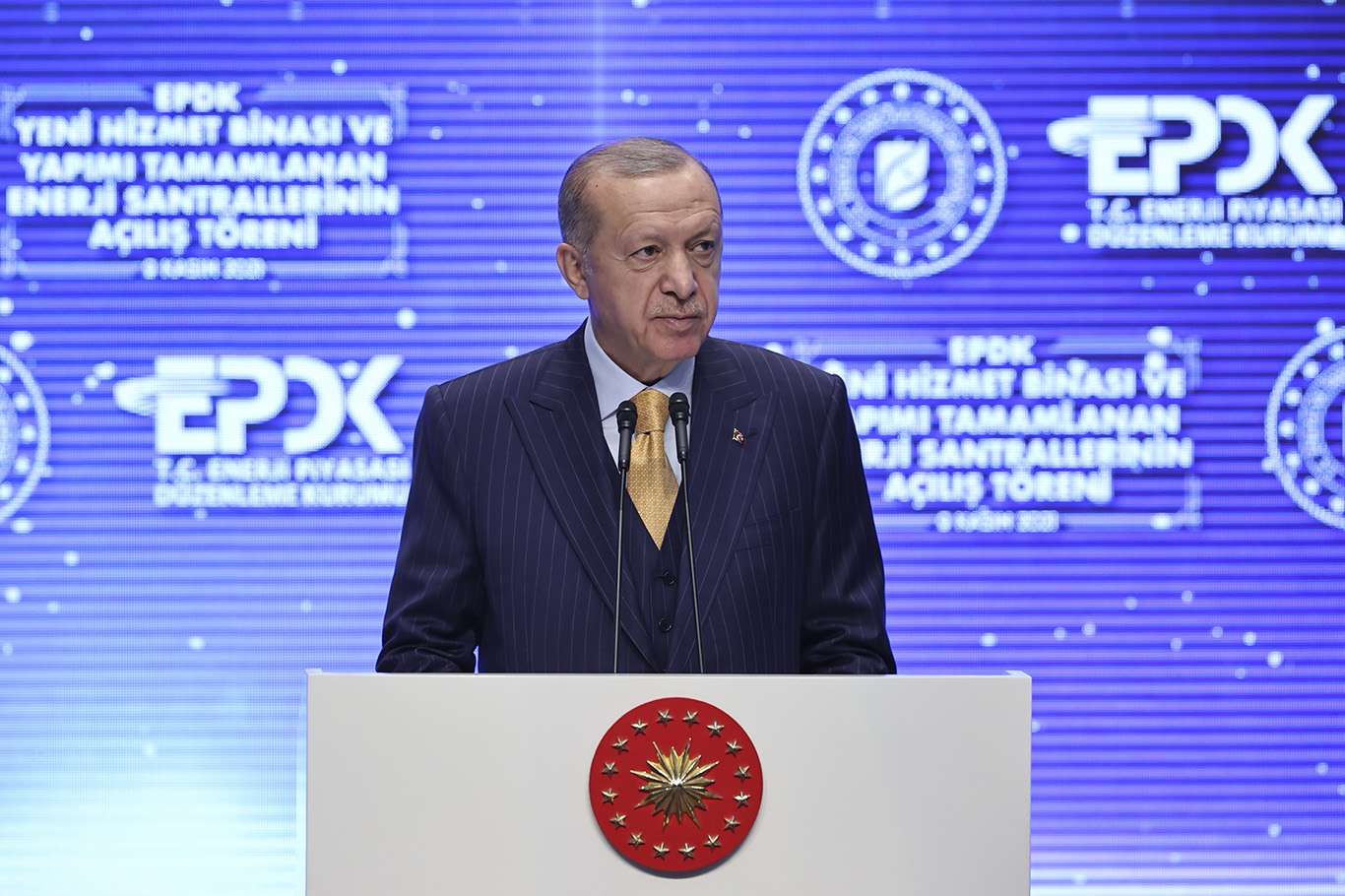
Half of the 109-page book, which includes Erdoğan’s introduction and the presidency’s Director of Communications Fahrettin Altun’s foreword, covers general information on environmental concepts and the historical course of international agreements. The first chapters give the impression that they were written to increase the number of pages. One-third of the book consists of full-page illustrations and photos, one of which is a photoshopped image of Erdoğan that makes him look younger. Chapters that describe Turkey’s revolution or initiative number only 38 pages.
Not surprisingly, Erdoğan begins his introduction by blaming the West, claiming “the fact that Western civilisation has seen nature as a commodity that should be dominated from the industrial revolution on has left us confronted with environmental disasters today.” His use of the term “civilisation” was deliberate and in line with his Islamist political view that presents the West as the source of all evil to his grassroots.
In the following paragraph, he sends a subliminal message that Islamic civilization is superior in terms of the environment by referring to the advice of the Prophet Muhammad: “As members of a civilisation that teaches ‘Plant a tree, even if it is your last deed,’ our country places a premium on environmental protection.”
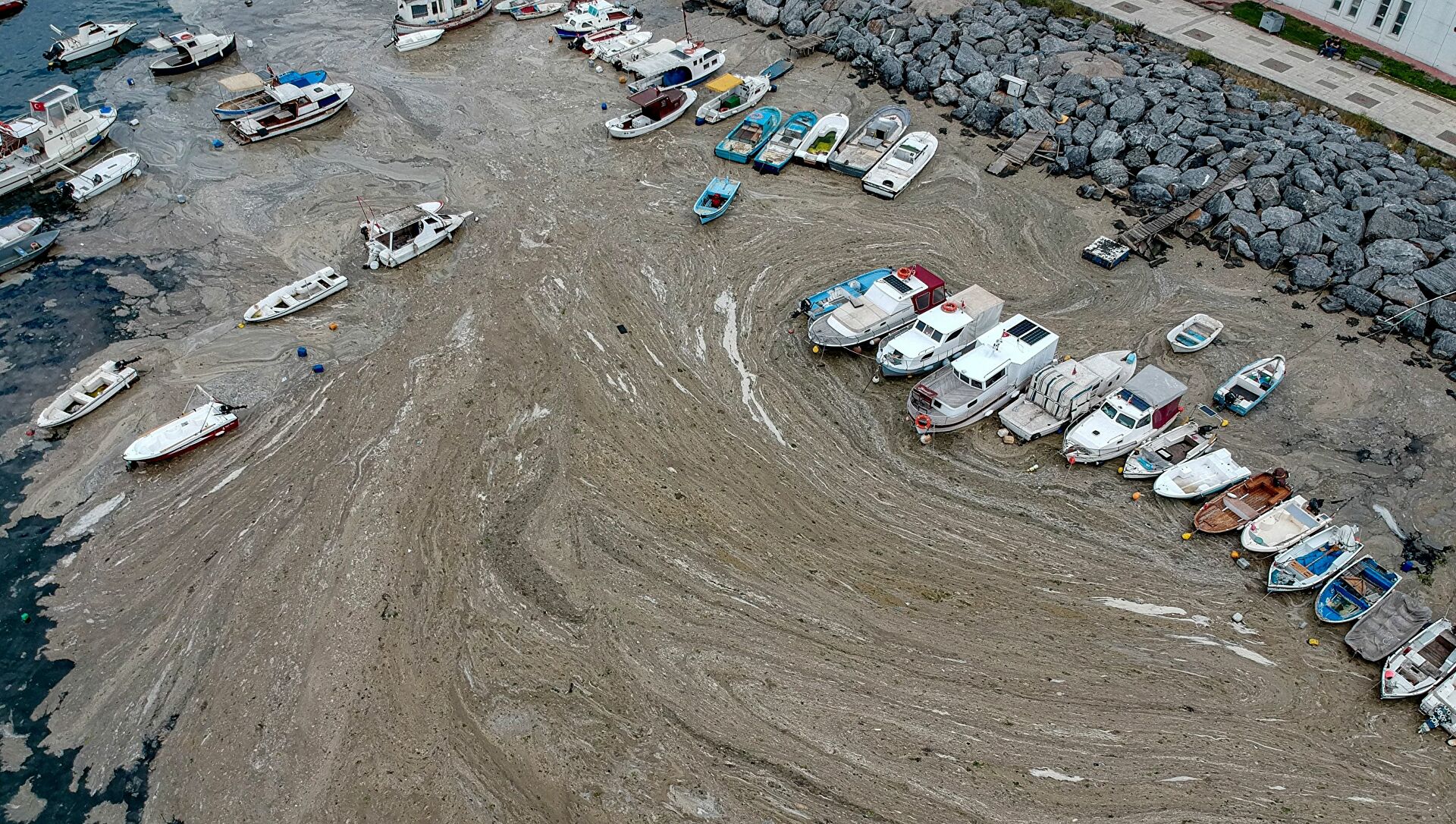
Claiming that the main responsibility lies with the industrialized giants that pollute the environment the most in the world, Erdoğan ends his article by reminding that Turkey’s impact on climate change is negligible: “Türkiye lends sincere support to the fight against climate change, although our historical responsibility for the current state of affairs is minuscule.”
The government’s action plans and the processes of Turkey’s participation in international agreements are included in the chapters of the book about Turkey. Turkey’s efforts to reduce carbon emissions during the period when the Paris agreement was not ratified are explained with official statistics. However, the Turkish Statistical Institute (TurkStat) is an institution that frequently comes to the fore by manipulating data due to political pressure. There is no organization in Turkey able to control the accuracy of the data presented by the institute, which is frequently criticized, especially in inflation calculations. Former TurkStat President Birol Aydemir admitted in a statement in 2020 that the data are not reliable. It is claimed in the book that Turkey will achieve the zero-emission target foreseen for 2053; however, it is not explained how the necessary financial resources to achieve the environmental goals will be created in an increasingly deteriorating economy.
A project that is praised in the book is the Zero-Waste Project initiated by Erdoğan’s wife, Emine Erdoğan:
“The Zero-Waste Project, which went into effect with a regulation on July 12, 2017, served to raise awareness among all stakeholders in the field of waste management. Thanks to Zero-Waste efforts, which our President’s spouse, Her Excellency Emine Erdoğan, regards as a trailblazer in Türkiye’s green transformation, significant achievements have been marked in the protection of natural resources and transition to the circular economy.”
In addition to allegations that the companies which will process the waste projected to be recycled belong to Erdoğan’s family, there have been developments showing that the government is not sincere about recycling. For instance, around 40 percent of the United Kingdom’s plastic waste was exported to Turkey and illegally collected and incinerated, according to a report by environmental organization Greenpeace. Plastic waste exported from the UK to Turkey was around 15,000 tons in 2015 and reached 210,000 tons in 2020.
While Turkey’s agricultural land totaled 40.6 million hectares when Erdoğan came to power in 2002, it decreased to 37.9 million hectares in 2017, with a difference estimated to be 2.6 million hectares.
While cultivated agricultural land was 26.027 million hectares in 2003, this figure decreased to 23.3 million hectares in 2017.
A large area of forests was destroyed for hydroelectric projects awarded to businessmen close to the government. Environmentalists protesting the destruction of forests were beaten by the police and gendarmerie in the last couple of years.
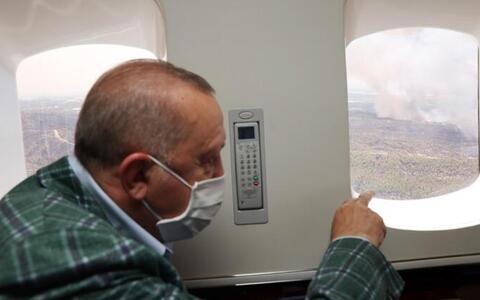
Huge wildfires in the south of Turkey over the summer increased Turkey’s total carbon dioxide emissions. Erdoğan’s government faced widespread criticism over the poor response and inadequate preparedness for the large-scale wildfires, which destroyed large swathes of forestland. Consuming a total of 1,750,000 acres of forestland according to data from the European Forest Fire Information System (EFFIS), these wildfires also released 15 million tons of CO2 into the atmosphere, as calculated by Dr. Nic Surawski, a senior lecturer in environmental engineering at the University of Technology Sydney. A TurkStat report indicated that the total annual CO2 emissions in Turkey had declined by 15.7 million tons compared to the previous year.
One of Turkey’s biggest environmental problems is the government’s allocation of green space for the construction of housing to generate revenue. The giant apartments built by the state-owned Housing Development Administration of Turkey (TOKİ) have turned many Turkish cities into mountains of concrete. It was revealed in a scandal that emerged in 2013 that businessmen close to the government made high profits from housing projects and paid commissions to the Erdoğan family.
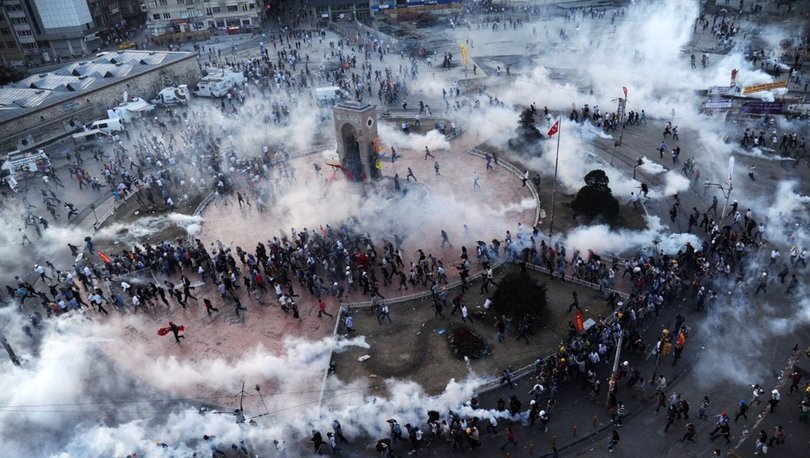
Undoubtedly, the best example of the Erdoğan government’s approach to the environment was the 2013 Gezi Park protests. A small park in the Taksim district of Istanbul was planned to be demolished for the construction of a shopping mall. Protesters were the victims of excessive use of force by the police. The people who were arrested during the nationwide protests were later charged with attempting to overthrow the government.
As a side note, Turkish businessman Osman Kavala, whose release by Turkey the US and the European Union have called for and the recent subject of a diplomatic crisis between Turkey and 10 embassies in Ankara, has been imprisoned for four years over his alleged role in the 2013 Gezi Park protests.
The digital version of the book prepared by Erdoğan’s office:

